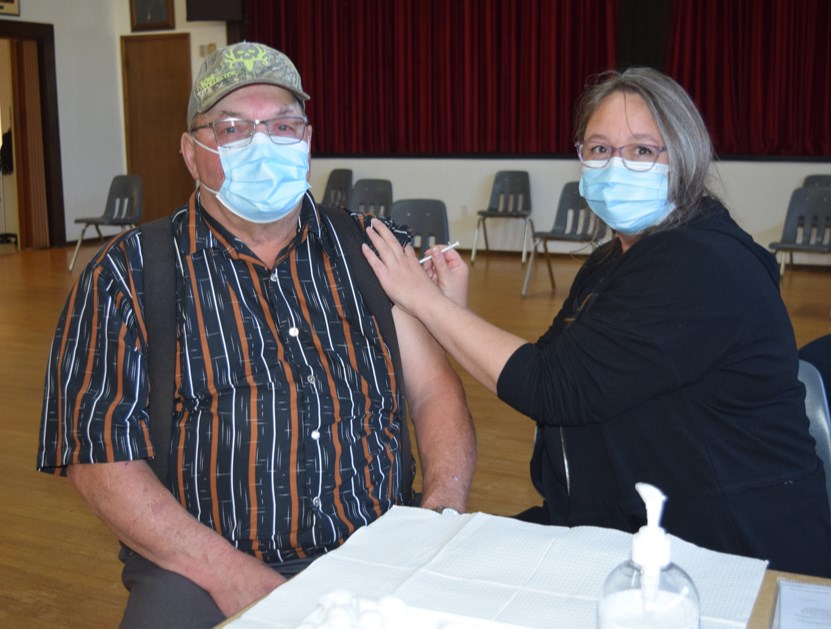CANORA - Even though COVID-19 has been making headlines the last couple of years, residents also need to remember the importance of being vaccinated in preparation for the upcoming flu season. A clinic was held at Rainbow Hall in Canora, where clients could come in and get both COVID and flu vaccinations if they so choose, or just one or the other.
Kelly Strelioff, Canora Public Health Nurse, said the clinic was busy and well-attended, with over 230 people coming through the doors to be vaccinated. But she reminds Canora and area residents that there will be more opportunities in the coming weeks.
"We will have more clinic dates coming up in November and December at the Rainbow Hall."
SHA (Saskatchewan Health Authority) will be offering the Influenza vaccination, as well as the Fluzone high dose influenza vaccine for adults aged 65 and over.
Residents are reminded that everyone six months of age or older can receive a free flu shot, according to information from SHA. An allergy to eggs is not a valid reason for a person not to receive a flu vaccination. A person cannot get the flu from a flu vaccination.
Influenza is caused by a virus that spreads easily through coughing, sneezing and direct contact with nose and throat secretions. It can result in hospitalization and death, especially in very young children, the elderly and those who have underlying health conditions. Symptoms include sudden onset of fever, cough, chills, muscle aches, a headache and a runny nose. Infected people can spread the virus to others before they show any symptoms.
Residents are urged to be immunized every year to protect themselves and everyone around them, continued the SHA information. Vaccination is highly recommended for chronic health conditions such as: lung and/or heart diseases, asthma, diabetes mellitus (types 1 and 2), neurological conditions, cancer, kidney disease, severe obesity, and children on long term aspirin therapy. Pregnant women in all trimesters and long-term care facility are encouraged to get vaccinated.
After flu vaccination, protection (antibodies) develops within two to three weeks in most healthy children and adults. Effectiveness varies depending on the age, the immune response of the person immunized, and the match between the vaccine viral strains and the influenza strains circulating in the community.
Also available at the Rainbow Hall clinic was the Moderna Spikevax bivalent Original/Omicron COVID-19 vaccine. According to SHA information, the vaccine causes our bodies to produce protention (antibodies) to prevent us from becoming sick if exposed to the COVID-19 virus. The vaccine uses messenger RNA (mRNA) to help a person's body make protection against the virus.
As with any vaccine, this vaccine may not fully protect all those who receive it (especially for immunocompromised individuals) and it is not known how long each individual will be protected.
COVID symptoms can include: cough, shortness of breath, fever, chills, tiredness and loss of smell or taste. It is important to note that infected people can spread the infection even if they have no symptoms.
About seven per cent of people diagnosed with COVID-19 in Canada require hospitalization and about two per cent die. Even people with mild symptoms may feel unwell for a long time after a COVID-19 infection.
In studies, people who receive the Moderna Spikevax bivalent Original/Omicron COVID-19 vaccine were monitored after receiving the vaccine and few serious side effects have been found to date. Side effects can develop up to three days after receiving the vaccine. Although these side effects are not serious to one’s health, they may make a person feel unwell for a day or two; they generally go away on their own.
Anyone with questions regarding any vaccination is encouraged to talk to their nearest public health nurse.




